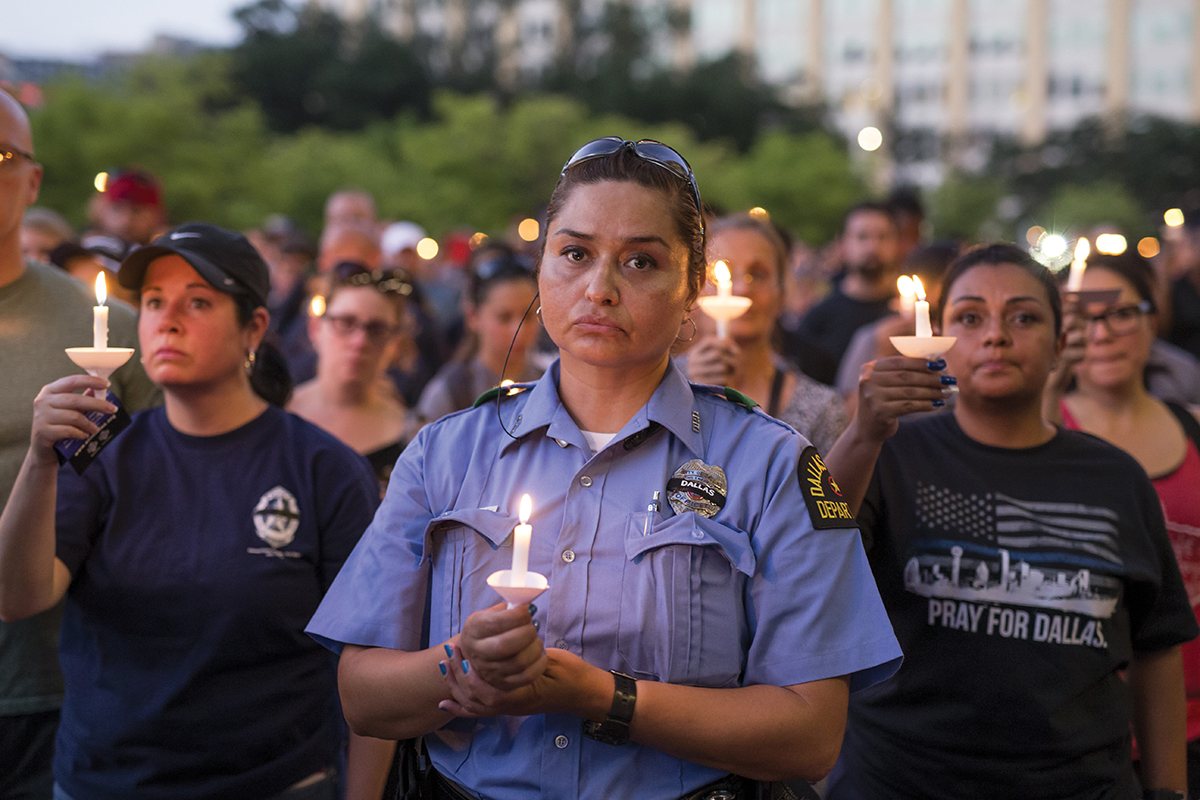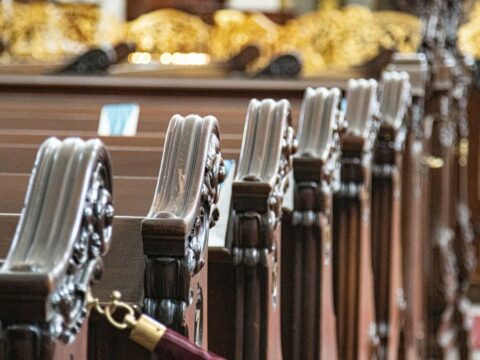Last July, the United States was reeling from the highly publicized death of Philando Castile, fatally shot by Minnesota police. The very next day, a man fired on Dallas police officers, killing five and injuring seven. It was a week of flared tensions and immense suffering.
Not long after, in early August, news of an atrocity committed by the so-called Islamic State made its way into my Twitter feed. Twenty Iraqis had been burned alive, their only crime being their refusal to join the terror group’s deranged ranks.
You may unsubscribe from any of our newsletters at any time.
In September, Arcan Cetin, 20, was arrested in the shooting deaths of five people in a Macy’s store in Burlington, Wash. Five lives, each snuffed out by a gunman with no identifiable motive.
For many in the United States, news of Donald Trump’s election to the presidency was met as a kind of tragedy. Stories of subway riders sobbing through their morning commutes and surges in the number of calls to America’s suicide prevention hotlines betray a grief-stricken state.
How can a benevolent, loving God allow such suffering and evil? It’s a question that has captivated the faithful, myself included, for thousands of years. Epicurus, the ancient Greek philosopher, is thought to be the first to offer this now-classic formulation: “Is God willing to prevent evil, but not able? Then God is not omnipotent. Is God able, but not willing? Then God is malevolent. Is God both able and willing? Then whence cometh evil? Is God neither able nor willing? Then why call God ‘God’?”
The events of 2016 alone — I mentioned only a few — should give us plenty of reason to question God. Indeed, in the face of such ubiquitous horror, how can we do anything but doubt, or even lose faith altogether?
At the same time, as a minister-to-be, I am deeply aware of the formative influence suffering plays in our lives, whether we are religious or not. When the waters of calamity threaten to engulf us, what do we cling to in our desperate efforts to keep our heads above water? As post-Enlightenment beings, our first instinct is to rationalize. Oh, the extraordinary lengths to which we moderns will go in trying to make sense of the senseless!
“It’s all part of God’s plan.”
“God works in mysterious ways.”
“When God closes a door, God opens a window.”
If you’ve spent any time around Christians amid tragedy, you’ve likely heard some of these sayings. Perhaps you’ve spoken them to someone else. I certainly have. Their intent is compassionate, if misguided: “Don’t allow the sting of death to penetrate your existential core. Keep the faith!”
Give these well-meaning Christians a few moments of your time, and they may elaborate. “See the example of Job,” the faithful explain. “His son’s house razed, his children killed, spurned by his wife, his body infected with sores — this is a man whose suffering knew no end, and who received no explanation. And yet, even while the dark canopy of suffering hung over him, Job persisted.” This is the example we doubters and sufferers are meant to emulate.
But these seemingly benign platitudes, and the stories of superhuman faithfulness that so often accompany them, feel shallow. They are insufficient to answer our deepest questions or to heal the wounds of our hearts. They delegitimize our suffering and equate our doubt with apostasy. They silence.
Counselling is an important part of a minister’s job. Because of this, when tragedy rears its ugly head, I often find myself wondering: Were a victim’s family to come to me searching for answers, how would I respond? By assuring them that this is all part of God’s plan? That the brutal, senseless killing of their loved one was preordained by a supposedly loving deity?
No, I think not.
In response to such inconsolable pain, I would advise that they lean in to their doubt. Rather than settling for inauthentic theology and hollow explanations, I would encourage their searching before God. “Do not shy away from the questions that arise out of these dark moments,” I see myself advising.
After all, it’s crucial that we ask such questions earnestly, knowing that, like Job, we may not receive a case-closing answer. Theodicy — the attempt to vindicate God’s goodness in the face of evil — is one of the only intellectual pursuits where the closer you get to an answer, the further you likely are from the truth. Indeed, if there’s a convincing solution to the Epicurean riddle, I have yet to discover it.
However, ours is a faith that, since its inception, has been forced to reconcile divine promises of blessing and abundance with the earthly realities of enslavement, exile and forsakenness. The Bible certainly contains rich examples of humans railing at God. As a minister counselling the bereaved, I envision myself skipping Job and suggesting a few lines from Psalm 44: “Rouse yourself! Why do you sleep, O Lord? Awake, do not cast us off forever! Why do you hide your face? Why do you forget our affliction and oppression? For we sink down to the dust; our bodies cling to the ground.”
Finally, I would leave my parishioners with this encouragement: “What you can count on, what I and countless others have counted on in the darkest hours of our own spiritual midnights, is the fact that God remains faithfully present.”
We experience this presence in different ways, but I’m convinced it manifests itself most often in community, in the warm embrace of a friend who knows you well enough to know there’s nothing to be said.
Faith can be defined as the ongoing orientation of the soul toward God. If this is true, then doubt and protest are extensions of that orientation, not rejections of it. They are paths taken by the faithful in response to events that defy any attempt at explanation, representing honest responses to the messiness and incoherence and contingency of the world around us. To borrow from writer and activist Anne Lamott, “The opposite of faith is not doubt, but certainty.”
So, for those of you unable to muster anything other than skepticism in the face of tragedy, may you find rest in the knowledge that doubt, far from being opposed to faith, is simply another one of its many outcroppings. And, if it’s any consolation, you’re not alone. I’m traversing these waters with you, clumsily keeping myself afloat and scanning the horizon for that much-needed lighthouse.
This story originally appeared in the January 2017 issue of The Observer with the title “The platitude trap.”












